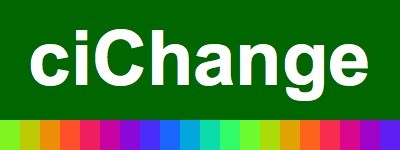Jersey has spent £4m+ on Freedom of Information and more on proprietary systems which stifle connectivity and opportunity. Government is more efficient and effective when information can flow: Open Data + Open Source is the solution
How about an idea which saves money, increases productivity and enables the type of connectivity which will help your staff, customers, products and services? Sound too good to be true? Open Data and Open Source have been around for ages, 25 years in fact, since the start of the internet. It is interesting to see governments around the world increasingly opt for open source. (See Link 1) Not just because it saves a fortune, but also because it democratises data which can more easily be shared (See Link 2). Under the circumstances you might ask why did it take so long?
We have Digital Jersey, a relatively small government, an appetite to embrace e-Government and a need to re-think our services and the cost of providing these. It is 25 years since the internet came into being, this is the ideal opportunity for Jersey to opt for Open Data and Open Source as a means to reduce cost and create innovation (See Link 3).
I don’t doubt the challenges of the upheaval, but the long term cost of legacy systems and costly licencing agreements, and well as the missed opportunities and threat of competition from other governments seeking to attract low-footprint high-value entrepreneurs to their shores (and away from ours) must be something we should consider seriously.
Imagine instead of answering FOI requests we said, “there’s the data, you do the work” and allowed people to build apps for car parks, environmental data, transport data, using public information for personal or professional purposes.
At TEDxStPeterPort (Link 4) two enterprising chaps Stephen Ozanne and Martyn Dorey managed to build an app that can read the law, and then interpret it. The example given was for a car which understands the highway code, speed limits and parking restrictions. Jersey should be able to conceive, collaborate, create and commercialise ideas, not just for the community, but commercially as our export. The starting point must surely be Open Data and Open Source.
Perhaps a more important opportunity exists in Health Care(Link 5). With increasing demands on the NHS it seems sensible that we re-think both the systems and their costs and better focus on the value to the customers. The possibilities generated by using open source or at least open standards are huge.
Some ideas worth sharing, make a difference - please tweet!
@AlanMacleanJsy can Open Data and Open Source can taxpayers money? #odihq. ( tweet this )
@DigitalJersey can Open Data and Open Source create innovation? #odihq. ( tweet this )
@lyndonfarnham can Data and Open Source create business opportunities? #odihq. ( tweet this )
@philipozouf can Open Data and Open Source stimulate the economy? #odihq. ( tweet this )
@CIPS_CI how much money is spent annually on software licences and upgrades?. ( tweet this )
@AlanMacleanJsy how much productivity is lost with each roll-out of the latest software versions?. ( tweet this )
@ascate1 what is the cost of FOI requests that could be more cheaply satisfied by Open Data ?. ( tweet this )
There are a good many technology businesses in Jersey, and some with vested interests in the status-quo, but I for one would welcome a healthy debate about the value which may accrue from using systems that allow community collaboration.
Would you like to discuss any of this? I'll happily share a coffee at Digital Jerseys Hub, or chat via Skype TimHJRogers or twitter @TimHJRogers I especially value different perspectives or experiences.
About cichange - ciChange is a not-for-profit forum for ideas and discussion, about all aspects of Change Management, including people, processes, teams and leadership. It is a place to share and exchange models, papers, ideas and information about change. ciChange has run a number of FREE, well attended Breakfast Briefings as well as the #inov8healthjsy event.
ciChange is sponsored by Total Solutions Group http://www.tsgi.co/
About Tim Rogers - Tim Rogers is an experienced Project and Change Leader. He is founder of www.ciChange.org and curator for www.TEDxStHelier.Com He is a Commonwealth Triathlete and World Championships Rower with a passion for teaching and learning and is a Tutor/Mentor on the Chartered Management Institute courses. He is a former Chartered Member of the British Computer Society, has an MBA (Management Consultancy) and is both a PRINCE2 and Change Management Practitioner.
Links and References
No1 http://theconversation.com/theres-no-better-time-for-governments-to-go-open-source-22654 Click Here
No2 http://www.techrepublic.com/article/as-open-source-goes-mainstream-institutions-collaborate-differently/ Click Here
No3 http://opendatainstitute.org/stories Click Here
No4 http://tedxstpeterport.com/#confirmed-speakers Click Here
No5 http://www.theinquirer.net/inquirer/news/2401818/nhs-rolls-out-vendor-neutral-archive-initiative-to-open-source-records Click Here



